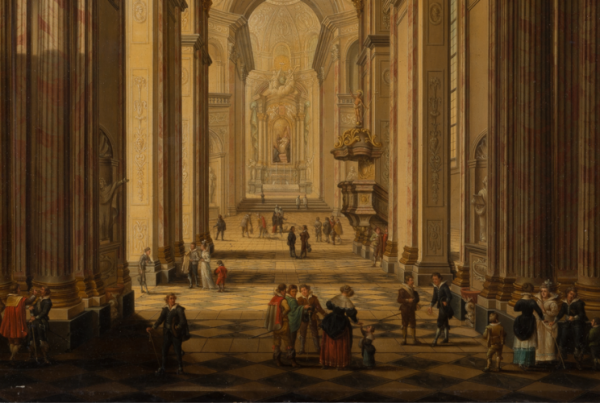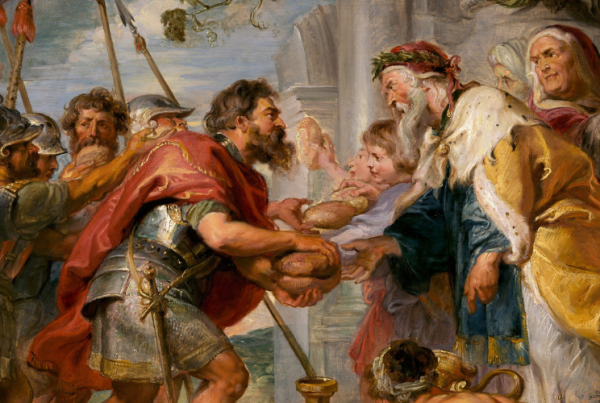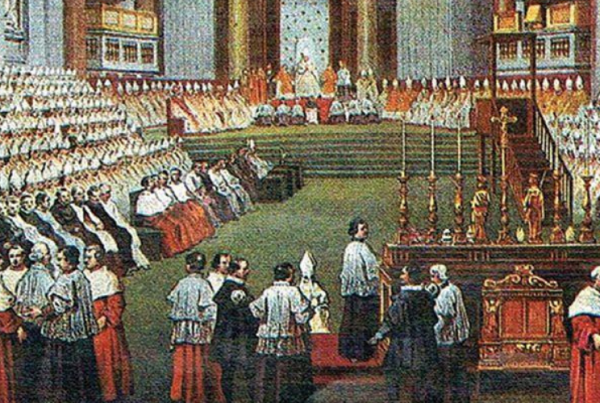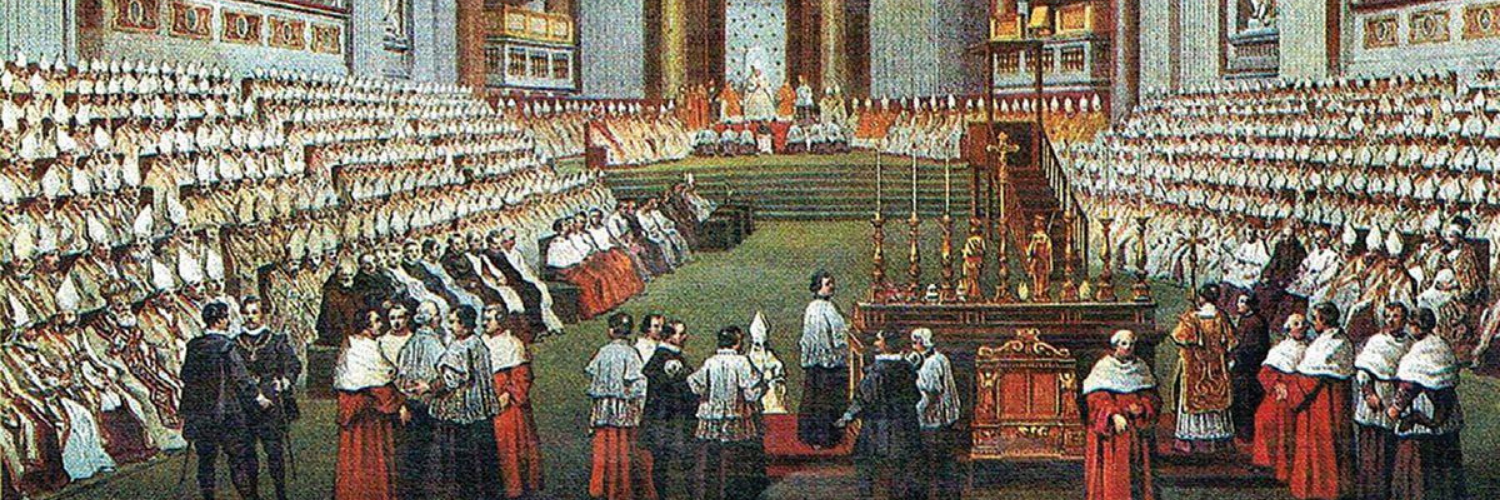
The Church is a Democracy
Fr. Paul Stein
Now and again, the news will report a survey on what Catholics think about a controversial issue inside the Church: divorce and remarriage, women “priests,” abortion, etc. The mainstream media’s approach to the Catholic Church is the same as its approach to almost every other public institution, it analyzes the Church through a political lens. The problem is that the Church is not a democracy, at least not in the usual sense.
We were founded by Christ to teach the truth he has revealed to us; we are not interested in taking opinion polls to decide what we will believe. We can only call the Church a democracy in the way that G.K. Chesterton did: the Church is a democracy of the dead. That means we are founded on Tradition.
Tradition may be defined as an extension of the franchise. Tradition means giving votes to the most obscure of all classes, our ancestors. It is the democracy of the dead. Tradition refuses to submit to the small and arrogant oligarchy of those who merely happen to be walking about. All democrats object to men being disqualified by the accident of birth; tradition objects to their being disqualified by the accident of death. Democracy tells us not to neglect a good man’s opinion, even if he is our groom; tradition asks us not to neglect a good man’s opinion, even if he is our father. I, at any rate, cannot separate the two ideas of democracy and tradition; it seems evident to me that they are the same idea. (From Orthodoxy, by G.K. Chesterton)
We were founded
by Christ to
teach the truth he
has revealed
to us
That is why the Church speaks of handing on the Revelation of Jesus Christ in Scripture (i.e. the Bible) and Tradition. Together, they make up what we call the Deposit of Faith. In the end, it is not a revelation of some abstract truths, but rather the self-revelation of God in Jesus Christ. God is the Truth and source of all Truth. Jesus is God incarnate who came that we might know and have life in the Father, through the Son, by the power of their Holy Spirit. It is sharing in the life of God through Jesus Christ. “Jesus said to him, ‘I am the way and the truth and the life. No one comes to the Father except through me’” (John 14:6).
In this way, we can speak of the Tradition or the Faith. It is the Church living the life that Jesus gives her, a life made possible by the truth that he has revealed. Because we know him, we can express things about him and the life he gives us in specific formulations known as doctrine. As the Church in apostolic times began to grow, people began to live life through hearing the apostles’ preaching. The stories they told can be called the “oral tradition.”
But even the stories they told would never have completely described the life of Christ. For example, how many families have numerous stories about this member or that member, yet a family is more than the stories it has about itself.
A family tradition is more than the stories about the tradition. You can speak for hours about what your family’s Christmas is like, yet the reality is more than what you can say about it. You have to live in the family and be a part of the Christmas celebration to be a part of that tradition, that life. Think of how impossible it is to encapsulate the entire family life throughout the year.
Equally so, the oral preaching of the apostles was not the entire Tradition, it was part of it. The stories about Jesus that they shared were necessary for people living life in Christ; after all, you cannot be in a relationship with Christ if you don’t know who he is. However, life in Christ is more than what you can know about him. That is why people entered the Church through baptism; they entered a community and began living in the family of God, living the life.
As the apostles started to be killed for their faith (martyred), the Christian community became concerned with writing down the stories about Jesus to preserve them for future generations.
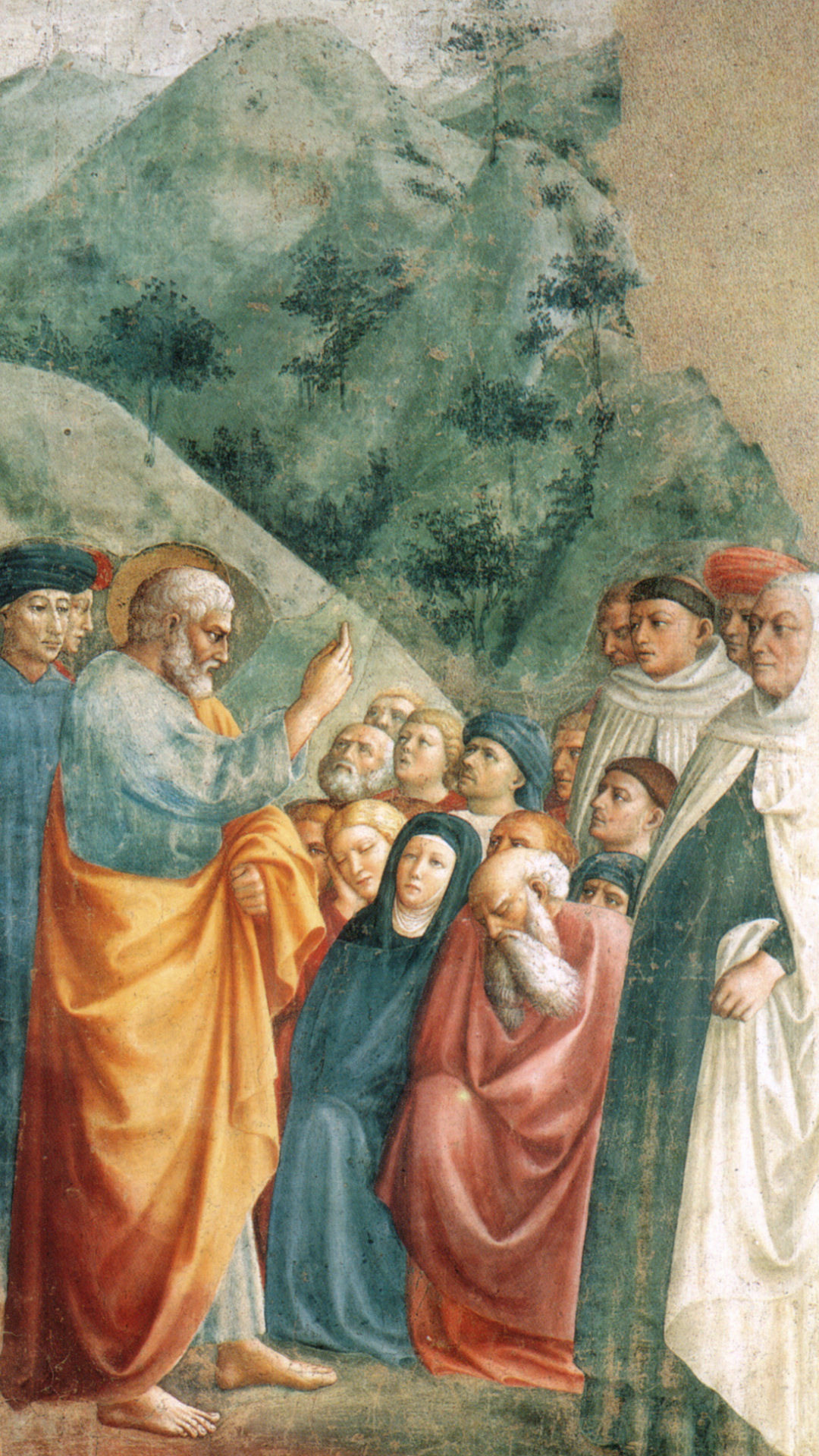
This is the origin of the gospels. The remainder of what is in the New Testament comes from letters written to the Church in specific cities (e.g. St. Paul’s letter to the Romans) and certain individuals. The presumption is that the people to whom the letter was addressed were already living the life. The letters of St. Paul, for example, are meant to address certain issues of the community in that city, not to provide an all-encompassing description of what Jesus said and did or a complete description of how to live the Christian life. These letters would not make sense to someone who was not a Christian, because the letters presume that you are already living — although poorly, as St. Paul points out — the life of faith.
As time progressed further, other people began writing stories about Jesus that were not true. An example would be the Gospel of Thomas, which reports:
Simon Peter said to them: Let Mary go forth from among us, for women are not worthy of the life. Jesus said: Behold, I shall lead her, that I may make her male, in order that she also may become a living spirit like you males. For every woman who makes herself male shall enter into the kingdom of heaven. (Gospel of Thomas, 114)
Not only were there false gospels, but also false letters attributed to apostles as well. This required the Church to begin deciding which writings were truly reflective of the faith she had received from the apostles, handed down from one generation to the next. The Church accepted as Sacred Scripture, those books which were reported to be from the apostles and reflected the life of faith that the Church was already living.
For example, the Gospel of Thomas claims things that women must become men to enter the kingdom of heaven. That is opposite to what the Church lives and believes. So the Church did not accept the Gospel of Thomas as authentic. The canon, meaning the list of books accepted by the Church as inspired by the Holy Spirit, was decided based on the life the Church was already living. In short, we know the Bible to be the inspired word of God because the Church declares it to be such. Furthermore, the Church teaches us to interpret the Bible because she is a community founded by Jesus and sustained by the Holy Spirit.
While the Tradition is more than the writings about the Tradition, once the writings have been completed and agreed upon as accurate — inspired by the Holy Spirit, without error — they become normative and cannot be edited.
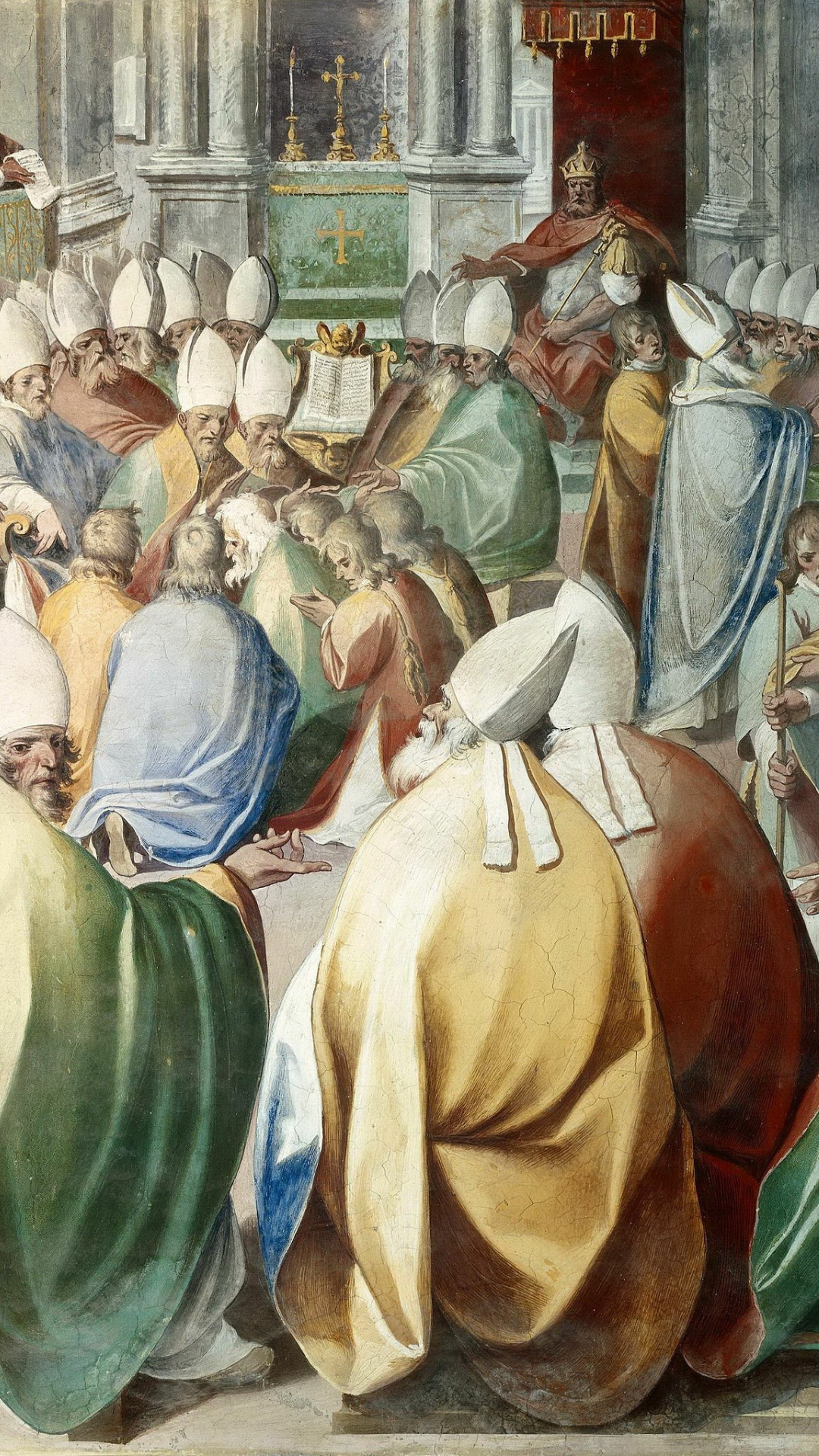
Future generations cannot insist that Scripture does not reflect and communicate the Tradition, particularly since such future generations receive the faith from the prior generations, all the way back to the generation that decided that Scripture is inspired and without error. Only in this way can a person speak of the Sacred Scripture in a way that distinguishes it from Sacred Tradition.
To summarize, there is one source of both Sacred Tradition and Sacred Scripture: the revelation of Christ entrusted to his apostles as a living reality. The Church is thus hands-on in every age (to every generation) everything that she is: the community of believers living life in Christ, which is only made possible by the truth. She hands on her very life which includes the “what” of belief. Thus the Church hands on Scripture and Tradition. The Tradition is thus everything that is a definitive part of living life in Christ. It includes belief in the Trinity as well as the celebration of the sacraments and the liturgy. Since the Sacred Scriptures are normative, the Church continues to reflect on and interpret them to continually clarify and hand on the Tradition. Yet, since Scripture is not self-interpreting, the Holy Spirit, which upholds and enlivens the Church in the first place, guarantees that the Church will not go astray in interpretation.
What This Means For Us
So if the Church is a democracy, it is a democracy of the dead. The opinions of our current culture notwithstanding. We belong to something so much greater than something we could create on our own. We belong to a living 2000-year Tradition started by God himself in Jesus; we are still living in communion with our ancestors. We are standing on the shoulders of giants, or rather, of the saints of God.
For Further Reading On This Topic
